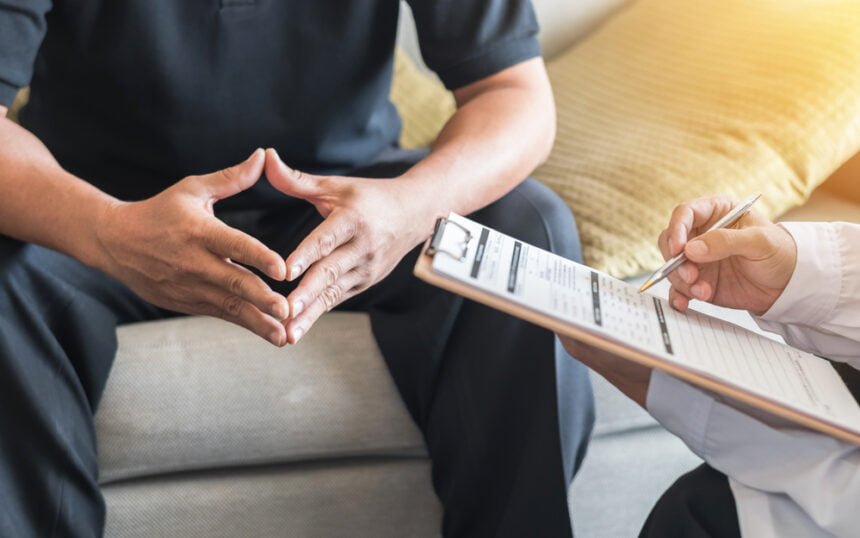It’s vital that no matter your circumstances, you look after your psychological and physical health. But with how stressful life can be, it’s no wonder many people turn to prescriptions or self-medicating to cope, which leads to a number of problems such as more traffic accidents.
However, you can improve your mental health without medication. It’s not to say that you should ignore what your doctor advises—if you have a prescription, it’s important to follow medical advice!
That said, there are many options for those who don’t have a prescription but want something to protect their mental health. Read on to find out various ways to maintain good psychological well-being.
1. Seek an Emotional Support Animal
An emotional support animal (ESA) could be a great solution if you experience the following:
- Difficulty calming down after a panic attack
- Difficulty experiencing new social situations
- Difficulty traveling by yourself or having trouble in unpredictable situations
You can only get an ESA or register your pet as an ESA if you’re currently on a treatment plan for your psychological health condition. Seek your doctor’s advice to see if you’d qualify.
An ESA certainly isn’t a “fix,” but assistance animals make a real difference to your quality of life. To see how and why you should register your pet as an ESA, visit esaregistration.org to start the process.
2. Increase Physical Exercise
Physical activity releases endorphins, hormones that boost mood every time you exercise. Over time, physical activity promotes mental well-being by decreasing stress and anxiety.
Physical exercise must be maintained (i.e., you need a routine) to improve your overall well-being. Your body has a bidirectional relationship with your mind, so whatever you do to improve your physical health will benefit your mental health.
Consider making a weekly plan and start small. You can set smaller goals to make it easier to accomplish them.
3. Use Mental Wellness Apps
While the body of apps is ever-growing, knowing where to start can often be overwhelming. The growing popularity of mental health apps proves how helpful—and needed—they are.
If you’re stuck on where to begin, many great recommendations are available. App guides break down which ones focus on what and fit which budget.
If you’re struggling with your psychological health, however, you should always seek the advice of a doctor. Don’t rely on mental health apps to do all the work; they aren’t medical professionals.
While the body of apps is ever-growing, knowing where to start can often be overwhelming. The growing popularity of mental health apps proves how helpful—and needed—they are, with options like Sensa leading the way. Sensa, for instance, is a highly effective and user-friendly mental health app that offers a wide range of features to support well-being.
4. Try a New Hobby
Doing what you enjoy, or using your brain in new ways, can be great for your psychological well-being. If you’re stuck on where to begin, consider the following:
- Learn to play an instrument
- Take singing lessons
- Learn a new language
- Help the elderly
- Take up a sport
5. Sleep Well
Sleep is of paramount importance to both your mental and physical health. A good night’s sleep can be challenging if you’re anxious, depressed, or stressed.
Sometimes, the expectation that you need to get a good sleep can further the symptoms of stress or anxiety. However, be kind to yourself and find methods that can help:
- Bedtime yoga
- A “sleepy” herbal tea
- Keeping your phone out of your bedroom
- Going to bed and waking up at the same time
You may want to look at our other tips on sleeping through the night without taking medication.
6. Hobbies and Creative Outlets
Engaging in hobbies and creative outlets is an excellent way to improve mental health without relying on medication. Hobbies can help reduce stress and anxiety, improve mood, and provide a sense of accomplishment. Here are some tips for finding and incorporating hobbies and creative outlets into your daily routine:
Identify your interests: Start by identifying activities that you enjoy doing. Make a list of things that you have always wanted to try, or things that you used to enjoy but haven’t done in a while.
Explore new hobbies: Don’t be afraid to try something new. Take a class or workshop to learn a new skill or explore a new hobby.
Make time for hobbies: Schedule time for your hobbies and creative outlets. Even if it’s just a few minutes a day, making time for these activities can improve your mental health.
Keep it simple: Hobbies don’t have to be complicated or expensive. Simple activities such as coloring, journaling, or knitting can be relaxing and therapeutic.
Join a group: Joining a hobby group or club can provide a sense of community and social support. This can be especially helpful for those who feel isolated or alone.
Some examples of hobbies and creative outlets that can improve mental health include:
- Painting or drawing
- Writing
- Reading
- Playing an instrument
- Singing
- Dancing
- Photography
- Gardening
- Cooking or baking
- Crafting
Incorporating hobbies and creative outlets into your daily routine can provide a much-needed break from the stresses of daily life and improve your overall mental health. So why not try something new today?
Final Thoughts
You don’t need to adopt all these methods to have good psychological well-being, but using some methods is bound to make a noticeable impact.

